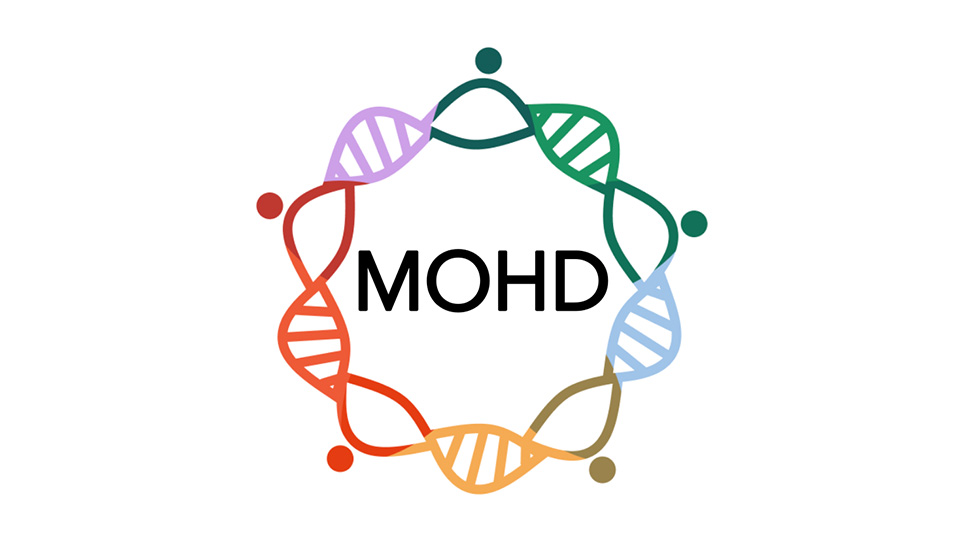The Multi-Omics for Health and Disease Consortium aims to advance the application of multi-omic technologies to study health and disease in ancestrally diverse populations.
Grantee Information
| Principal Investigators | Institution (Contact PI) | Title | Component |
|---|---|---|---|
| Vaia Lida Chatzi*, Max Aung, Fotini Mitsinikos, Nathan Pavlovic, David Conti, Alaina Vidmar, Tanya Alderete | University of Southern California | Longitudinal integration of environmental exposures, omics, and childhood NAFLD (LEON) Study | Disease Study Site** |
| Stephanie Christenson*, Neeta Thakur, Stephanie Holm, John Balmes, Tuuli Lappalainen | University of California, San Francisco | EXposomic Profiling in Airway disease to uNravel Determinants of disease in Asthma (EXPAND-Asthma) Center | Disease Study Site** |
| Tanika Kelly*, Ana Ricardo, Maria Argos, Hua Chen, Martha Daviglus, Jennifer HerbertBeirne, James Lash, Robert Sargis, Tamar Sofer | University of Illinois at Chicago | Multi-Omics at the Intersections of Environment, Diabetes, and Kidney Disease: A Multi-Omics for Health and Disease Study Site | Disease Study Site** |
| Krzysztof Kiryluk*, Elizabeth Cohn, Iuliana Ionita-Laza, George Hripcsak, Ana Navas-Acien, Gary Miller, Maya Sabatello, Shayan Shirazian, Teena Zachariah, Ali Gharavi | Columbia University | Multi-Omics for Chronic Kidney Disease | Disease Study Site |
| Louise Laurent*, Kathryn Lindley, Ravi Shah, Mana Parast, Mariko Horii, Marni Jacobs, Jennifer Below, Kathleen Fisch | University of California, San Diego | Multi-Omics for Maternal Health after Preeclampsia | Disease Study Site |
| Joseph McCormick*, Jennifer Below, Kari North, Susan Fisher-Hoch, Absalon Gutierrez | University of Texas, Health Science Center Houston | Multi-omics for obesity-associated liver disease discovery in Hispanics/Latinos: the Cameron County Hispanic Cohort | Disease Study Site*** |
| Gary Patti*, Ting Wang, Shamim Mollah, Leah Shriver | Washington University | Washington University Omics Production Center | Omics’ Production Center |
| Zhiping Weng*, Anshul Kundaje, William Noble, Honghuang Lin, Jill Moore | University of Massachusetts Medical School Worcester | Multi-Omics DACC: The Data Analysis and Coordination Center for the collaborative multi-omics for health and disease initiative | Data Analysis and Coordinating Center*** |
*Contact PI
**Co-funded by NIEHS
***Co-funded by NCI
Program Staff
NHGRI

Temesgen D. Fufa, Ph.D.
- Program Director
- Division of Genome Sciences

Joannella Morales, Ph.D.
- Program Director
- Division of Genomic Medicine

Erin M. Ramos, Ph.D., M.P.H.
- Director
- Division of Genomic Medicine
NCI

Leah Mechanic, Ph.D., M.P.H.
- Program Director, Division of Cancer Control and Population Sciences
- Division of Cancer Control and Population Sciences

Melissa Rotunno, Ph.D.
- Program Director
- Division of Cancer Control and Population Sciences, NCI
NIEHS

Kimberly McAllister, Ph.D.
- Program Director
- Genes, Environment, and Health Branch, NIEHS
Last updated: August 28, 2024

